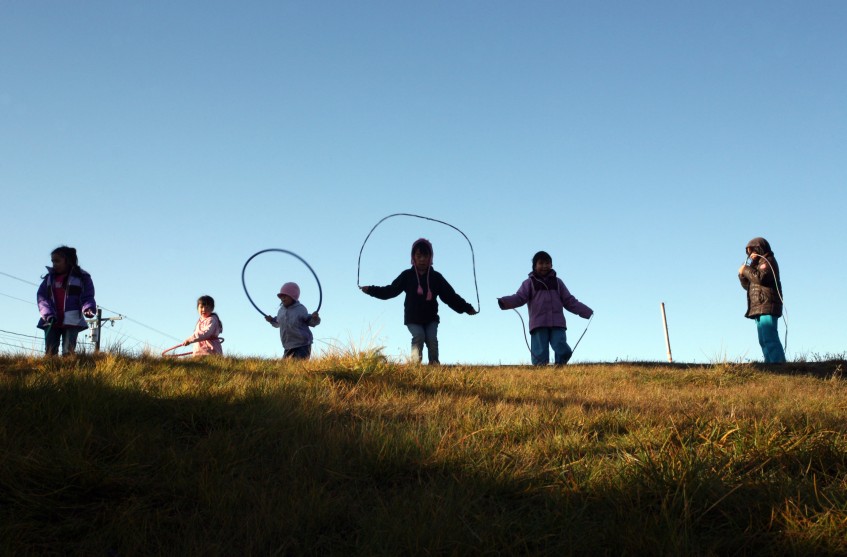Pediatric Research Program

ANTHC’s Clinical and Research Pediatric program conducts research and develops programs to address health disparities and promote wellness among Alaska Native children to achieve the goal that “Alaska Native people are the healthiest people in the world”.
RESEARCH CONDUCTED
ANTHC’s Pediatric Program works with both local and national Tribal Health partners, universities, foundations and the congressionally mandated program, Institutional Development Award (IDeA).
IDeA States Pediatric Clinical Trials Network (ECHO ISPCTN)

ANTHC with partner Southcentral Foundation is one of 18 research sites for the NIH-sponsored ISPCTN – a research network of rural and underserved states.
Pharmacokinetics of Understudied Drugs in Children (POP01) – This nationwide study gathered data to determine the proper dosages for FDA labeling of understudied drugs in children.
Advancing Clinical Trials in Neonatal Opioid Withdrawal Syndrome (ACT NOW) Data Collection Study – ANMC evaluated hospital course opioid-exposed newborns. ANMC Results: During 2016-18, only 66% were discharged home with parents. We are working with 3 Alaska hospitals to evaluate the impact of a new model of NOWS care to improve # discharged home with parents.
RELEVANT PUBLICATION:
Research and policy priorities for addressing prenatal exposure to opioids in Alaska
ECHO ISPCTN Proposals for Future Research
Strategic Testing and Engagement in Pediatric Underserved Populations (Step Up) – Work with communities to understand barriers to SARS-CoV-2 testing and implement strategies to improve community-wide testing.
Reduction of indoor air pollution with HEPA filtration to decrease respiratory symptoms after bronchiolitis – Evaluate whether HEPA filtration can reduce recurrent wheezing in children hospitalized with bronchiolitis.
Surveillance for RSV and other respiratory infections in American Indian and Alaska Native people
Alaska Native and American Indian people have the highest rates of RSV and other respiratory infections in the U.S. ANTHC, Yukon Kuskokwim Health Corporation (YKHC), and Johns Hopkins University received CDC funding to study respiratory infections in YK Delta, Anchorage, Navajo and White Mountain Apache Native American people hospitalized with respiratory infections 2019-2024. Results will help us target RSV prevention and COVID response strategies.
The Prenatal Vitamin D study
In 2016 YKHC started routine prenatal vitamin D supplementation to prevent rickets in young children. ANTHC and YKHC received NIH funding to evaluate the impact of prenatal vitamin D supplementation on vitamin D deficiency in prenatal women and early cavities in children.
RELEVANT PUBLICATIONS:
Rickets and vitamin D deficiency in Alaska native children
Declines in traditional marine food intake and vitamin D levels from the 1960s to present in young Alaska native women
Indigenous Home Health: Community Driven Approaches to Wellness
ANTHC, University of Montana, and Swinomish Tribe received funding from the JPB Foundation to develop community-driven projects with community members that improve home health.
RELEVANT ANTHC PUBLICATIONS:
Housing characteristics and indoor air quality in households of Alaska Native children with chronic lung conditions.
Impact of Home Remediation and Household Education on Indoor Air Quality, Respiratory Visits, and Symptoms in Alaska Native Children.
Environmental Health Consults in Children Hospitalized with Respiratory Infections.
